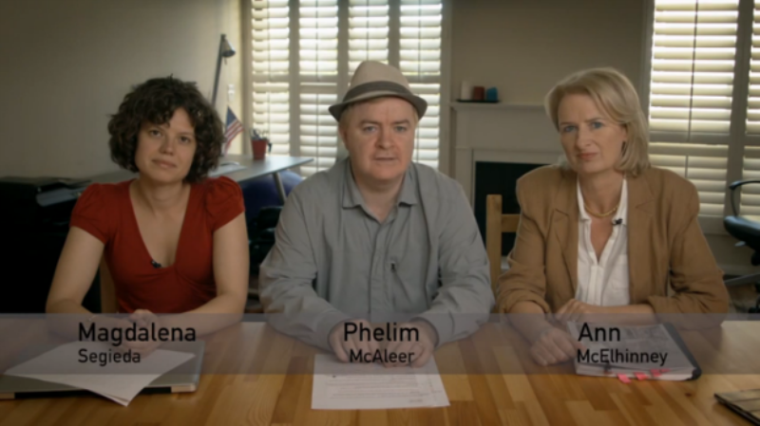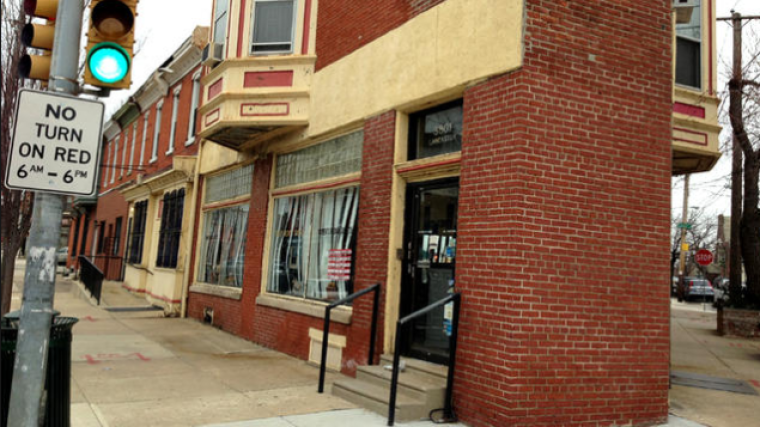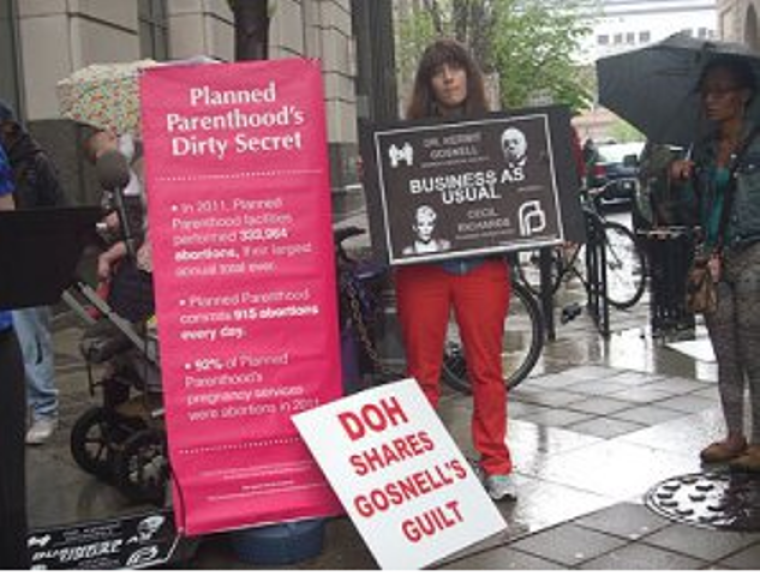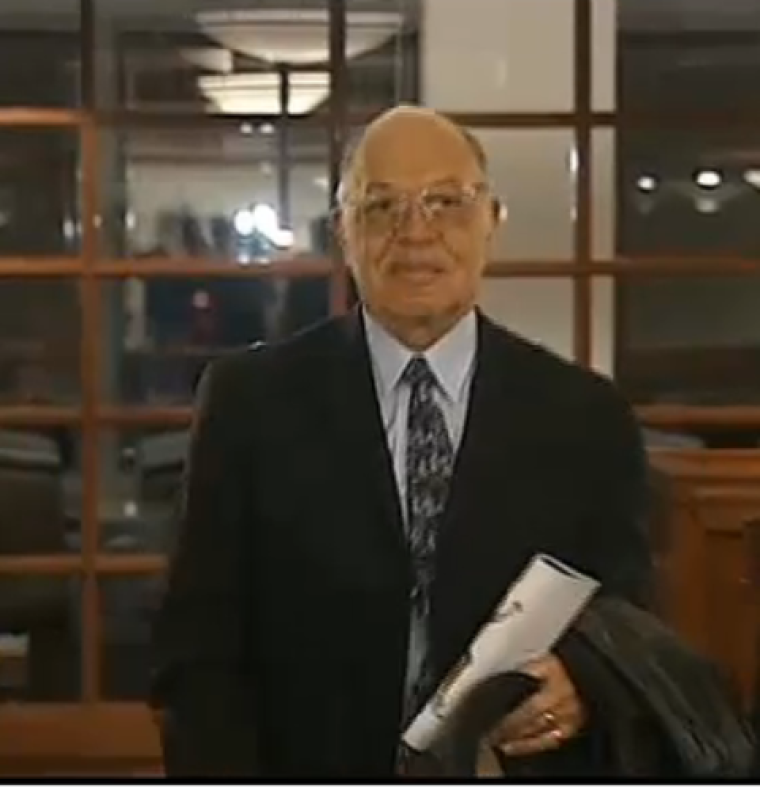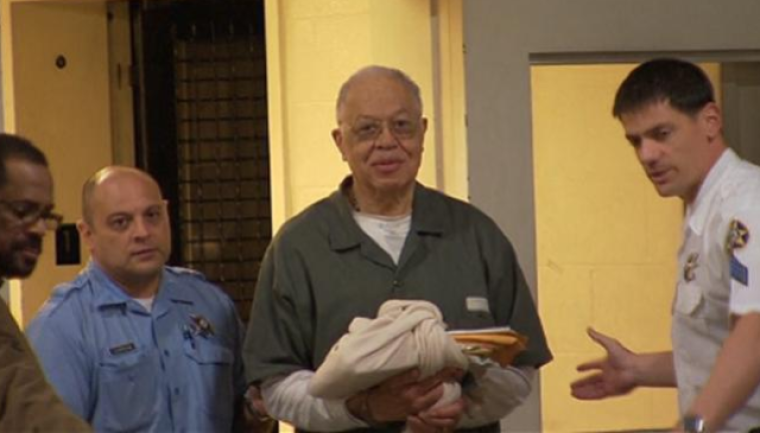Kermit Gosnell's 'House of Horrors' Abortion Crimes Exposed in New Book on 'America's Most Prolific Serial Killer'
Two acclaimed investigative journalists have captured in a new book the stories of the newborn and unborn babies that late-term abortionist Kermit Gosnell killed at his West Philadelphia abortion clinic, a story most major media outlets ignored.
Phelim McAleer and Ann McElhinney, filmmakers who hail from Ireland but are now based in California, told The Christian Post in an phone interview on Monday that writing their latest book, Gosnell: The Untold Story of America's Most Prolific Serial Killer, shook them both to their core.
In 2014, McAleer and McElhinney launched a wildly successful crowdfunding campaign, raising over $2 million to produce a motion picture called Gosnell, for which they are now looking for a distributor. CP asked them why they wrote an accompanying book if their movie tells the story so powerfully.
"After we decided to make the movie we went to Philadelphia and started interviewing people, and we bought the trial transcripts and started going through them," McElhinney said.
They soon realized some of the events that happened could never be shown on screen.
"But we thought, people didn't know them. And the stories should still be told," she added.
Kermit Gosnell is now serving three life sentences in prison, having been convicted on May 13, 2013, of first degree murder in the deaths of three infants and involuntary manslaughter in the death of Karnamaya Mongar. He was also convicted of 21 felony counts of illegal late-term abortion, and over 200 counts of violating the 24-hour informed consent law. Yet it is estimated that he murdered thousands of unborn babies over the course of several decades while government officials looked the other way. And those babies are the people for whom McAleer and McElhinney intend to speak in their new book.
One of the stories included is a particularly chilling case of a young woman who was getting an abortion at Gosnell's clinic while her cousins dined at a pizzeria across the street. When the cousins went to check on her, Gosnell had locked the door. Several hours passed and they ultimately threatened to call the cops.
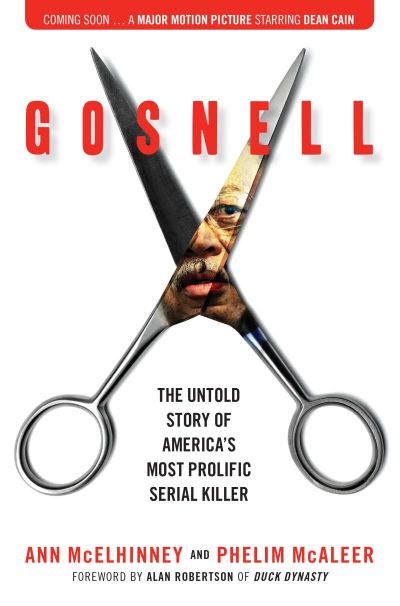
At the mention of possible police presence Gosnell let them in where they found their cousin lying in a chair in a stupor, half-naked and bleeding. Gosnell summarily gave them a container holding the pieces of the aborted baby's body he had extracted and instructed them to go to the hospital to tell the staff there that those were the only bits he had removed and that they would have to look for the parts he missed.
"There's no way we could have put that into a movie," McElhinney said. "But people should know this happened. And people should know that a hospital received those remains of those parts of the baby. As years passed and time went on, nothing was done."
Another story the authors recount involve a woman who gave birth striding over a toilet in Gosnell's filthy facility. The newborn baby was swimming for its life in the toilet bowl when a clinic worker came in and lifted the child out of the water and cut its neck with scissors, severing its spinal cord.
"There were so many stories like these," McElhinney said, adding that she also thought that there would be people who watched the movie and not believe that it really happened.
"So, I thought, let's really get all the facts out here with quotes from the trial transcripts, with interviews from the assistant district attorneys, with interviews of the judge of the grand jury, with interviews with women who had abortions there, and of people who worked there. Let's get all of that in front of people and then have them then say that what people said under oath, under pain of perjury in a courtroom was untrue," McElhinney continued.
In the preface of the book, McElhinney notes that unlike other projects she has worked on this story caused her to reengage fundamental moral questions about good and evil. Prior to this endeavor she was put off by pro-life activists, their overt religiosity, and what she thought were doctored, scary pictures of aborted babies they sometimes brandished.
Yet, when McElhinney saw the photos of Gosnell's victims that came straight from police detectives and the medical examiner's office, something shifted in her. She writes that she often wept at her computer, acknowledging that though she had not prayed in years she started saying the "Our Father" because she did not know what else to do.
"It made us sick to our stomach, made us nauseous, because of how evil, how dehumanized, how banal the evil was," McElhinney recalled. "In that circle of Hell that [Gosnell] created, people were laughing, people were jovial, people joked around, and there's something uniquely macabre, something uniquely diabolical about that."
"I have definitely reengaged spiritually as a result of this case," she added. "It has brought me back to Jesus, to prayer, to the Bible, and to my faith. It is very much because of the absolute darkness of this story."
In chapter 10 the authors document what is arguably the most scandalous aspect of this story — the fact that the mainstream media chose not to cover it. Due to the tireless work of Philadelphia narcotics officer Jim Wood, the horrors of Gosnell's operations were finally exposed, his clinic raided, and in 2011 Gosnell himself was arrested and charged.
Yet when his trial began in March 2013, no major mainstream news organization touched it, despite harrowing expert testimony that should have made headlines. Only after USA Today columnist Kirsten Powers penned a piece on April 11, 2013, wherein she described some of the stomach-turning details of the case and castigated the media for their failure to report it did the national press begin to pay any attention.
CP asked the authors how so many reporters could have deliberately ignored this given the manner in which and how many newborn babies were slaughtered.
Put simply, said McAleer, "journalists are biased, and they are biased toward a pro-choice, pro-abortion stance."
"They didn't get together in some darkened room or some website where they all decided conspiratorially not to cover this. They all decided individually that this is something that they didn't want to cover. And the reason they didn't want to cover it is because it would shine a negative light on abortion. The honest ones will admit that. The dishonest ones will say, 'Oh, we were too busy' or 'We didn't have enough resources,'" he said.
McAleer believes such excuses are utter nonsense.
"This is a classic crime story. This is a classic, wonderful journalistic story about an issue of national importance, an issue of national debate. And if it was a pro-lifer doing something similar, murdering people, you can bet that they would have covered it. I don't want to overexplain it. It's just simple journalistic bias."
McAleer also told CP that he thinks that Gosnell-like atrocities are common in the U.S. And people just do not know what abortion involves.
"Illegal or legal, this is a bloody, disgusting, process. It is a barbarous process," McAleer said. "Planned Parenthood has done a great job of hiding the truth about abortion."
McAleer's investigation into the activities of the abortion industry has continued. CP interviewed him on Dec. 22, 2016, soon after he discovered in the 547-page Senate Judiciary Committee Report on their investigation into biotech companies that were caught in the summer of 2015 illegally selling fetal tissue from aborted babies.
Those companies were charging their customers $325 for fetal body parts from cadavers they had procured from Planned Parenthood and other abortion clinics. One such firm invoiced their client for the skin of an aborted Down's Syndrome baby. As with the Gosnell case, the mainstream media took no interest in the story.
McAleer further noted that what he hopes is that the book will get on best-seller lists such that the media will not be able to continue to ignore these atrocities and Kermit Gosnell would become a household name.
"You can never unlearn anything that you get from this story and we got a very swift education. And we are not the same people we were before we got that education. And I think the strength of this story is that people will have to reassess the position that they may have taken before," McElhinney asserted.
"We're grownups and we consume an enormous amount of media, we read newspapers, we're well-read. And it's kind of shocking to have gotten to this stage and not know this. If we didn't know it, people don't know it," she concluded.
For more information about Phelim McAleer and Ann McElhinney and the book, click here.









